The Winter Meeting, hosted by Colorado Gov. Jared Polis, featured six Western Governors, Sec. Haaland, Mitch Landrieu
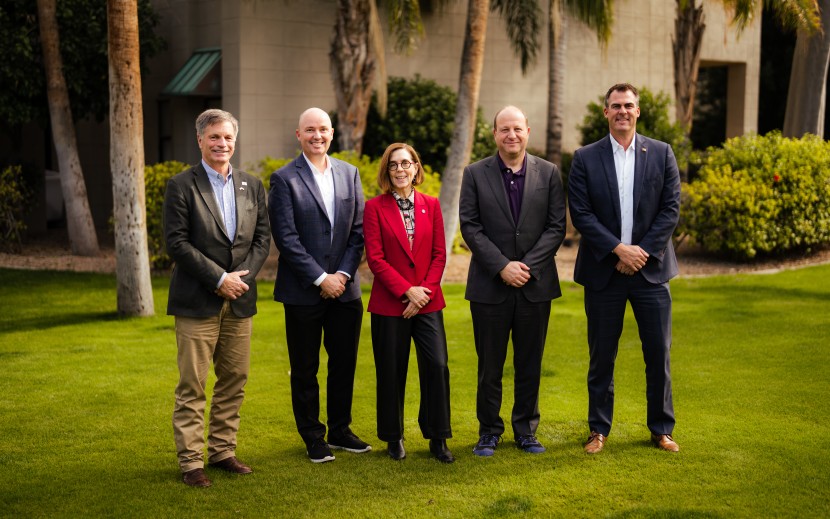
With the holidays right around the corner, WGA Executive Director Jim Ogsbury opened the 2022 Winter Meeting of the Western Governors’ Association at the iconic Arizona Biltmore with the Phoenix Children’s Chorus singing Christmas carols that were comically personalized for each of the five Western Governors in attendance.
After a few laughs, however, the Governors got right down to business. In his opening comments, The Chair of WGA, Colorado Gov. Polis, spoke about some of the Association’s ongoing work, including his Chair Initiative, The Heat Beneath Our Feet, and thanked all in attendance for their active participation to address some of the most critical issues facing the region during the two-day meeting.
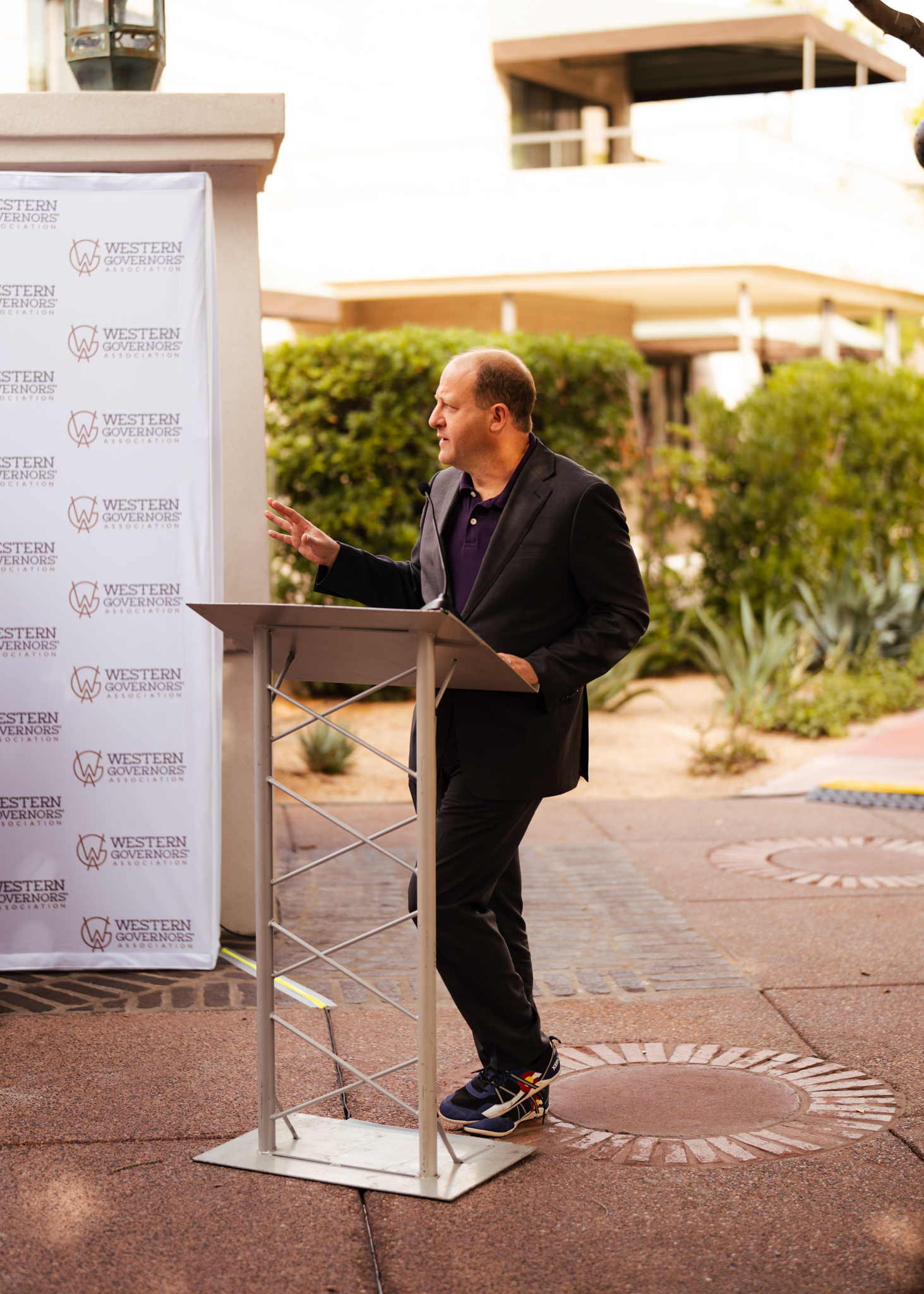 “We’re going to use the next couple of days to discuss issues, seek practical common-sense solutions, in a non-partisan way, to move the West forward and move the nation forward,” he said. "We in the West continue to be successful with your help and working together... thank you all for being here and empowering this important work."
“We’re going to use the next couple of days to discuss issues, seek practical common-sense solutions, in a non-partisan way, to move the West forward and move the nation forward,” he said. "We in the West continue to be successful with your help and working together... thank you all for being here and empowering this important work."
This theme of non-partisan collaboration was echoed by all of the participants on Day One of the meeting, including Secretary of the Interior Deb Haaland, who spoke at length about the work her department is undertaking to address the region’s historic drought, catastrophic wildfires, and the transition to renewable energy.
“The dire circumstances we are in require extraordinary cooperation,” she said. “We can’t count on the way things have always been to carry us through. Yes, they’re uphill fights, but it’s nothing we can’t do together.”
Keynote I – The Honorable Deb Haaland, Secretary of the Interior
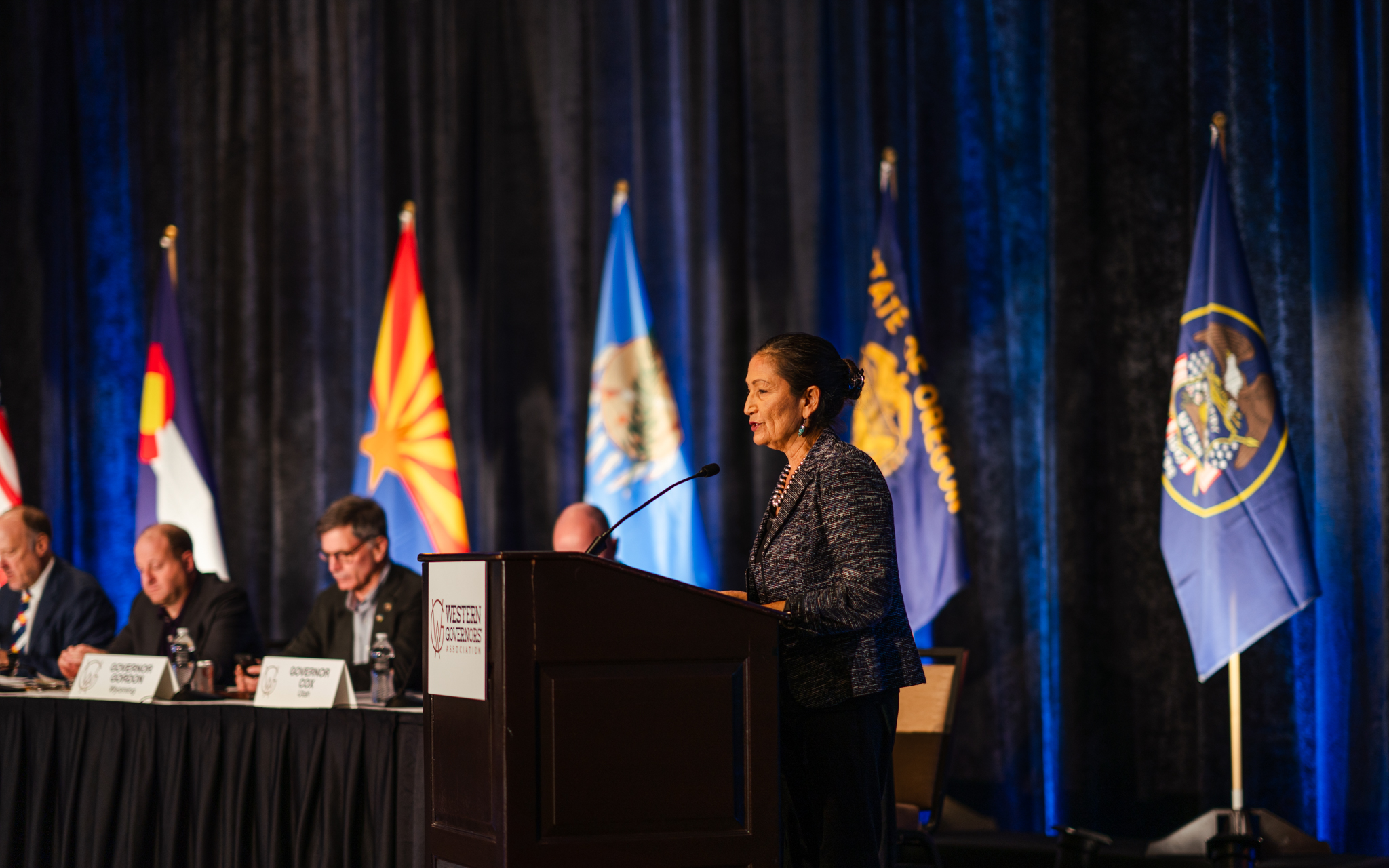 "The Biden-Harris administration understands that to address the climate crisis head-on we must unleash clean reliable energy that serves every household in America," she said. "Interior is hard at work to implement historic investments that will make western states and Indian tribes more resilient in our changing world and create good paying jobs."
"The Biden-Harris administration understands that to address the climate crisis head-on we must unleash clean reliable energy that serves every household in America," she said. "Interior is hard at work to implement historic investments that will make western states and Indian tribes more resilient in our changing world and create good paying jobs."
Roundtable I – Zeroing in on Heavy-Duty Emissions
Allie Kelly, Executive Director, The Ray:
"The first thing states can do is get state energy offices and state DOT to begin meeting regularly. That is the best thing states can do to accelerate the expansion of the energy grid."
Michael Archibald, Global Head, Hydrogen Infrastructure Development, Nikola Corporation:
“Nikola is working to move obstacles out of the way and work with partners to move forward EVs,” he said. “Collaboration between the feds and manufacturers is key.”
Amanda Pietz, Administrator of Policy, Oregon Department of Transportation:
"Utilities are absolutely a key part in all of this," she said. "To get the grid capacity we need, it's going to be a lot of utility upgrades"
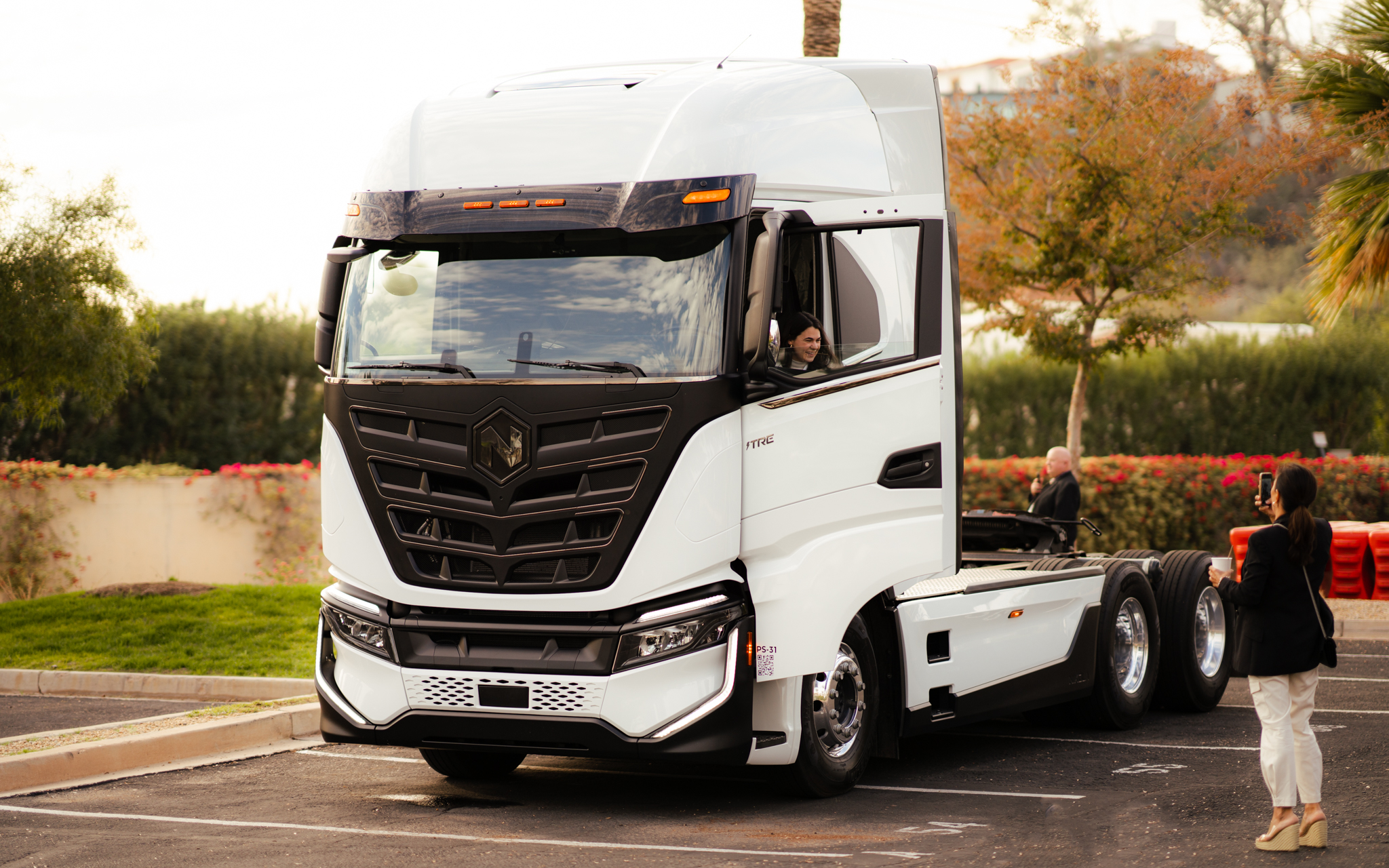 Steve Lommele, Interim Communications and Stakeholder Engagement Lead, Joint Office of Energy and Transportation:
Steve Lommele, Interim Communications and Stakeholder Engagement Lead, Joint Office of Energy and Transportation:
“What states need to do is to continue to work together,” he said. “Continued collaboration is the theme we need to continue to work on.”
Keynote II – John D. Leshy
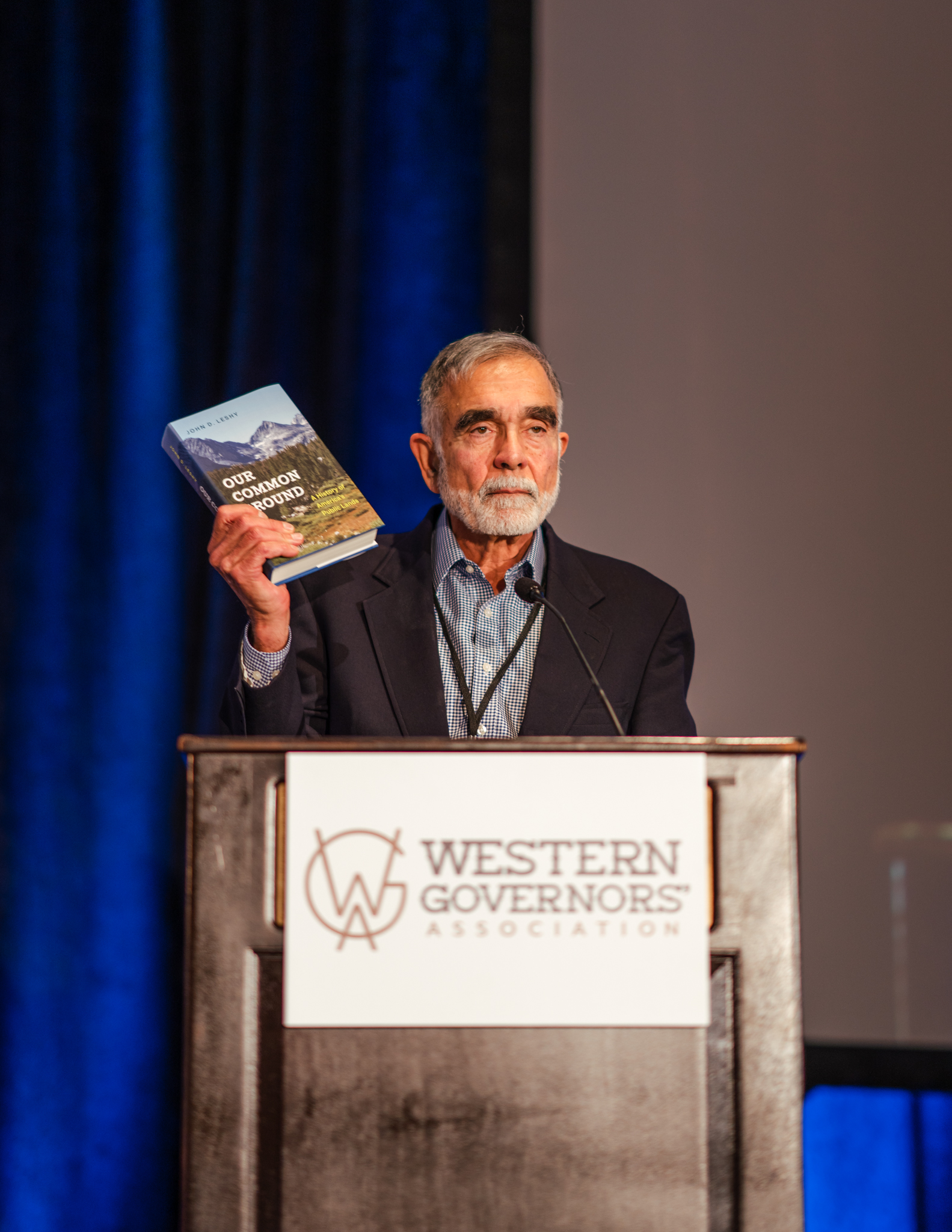 “Public lands have much more brought us together than divided us,” he said. “Regardless of political party, large majorities of Americans across the West want more and better protected public lands."
“Public lands have much more brought us together than divided us,” he said. “Regardless of political party, large majorities of Americans across the West want more and better protected public lands."
Roundtable II – Desalination Solutions for Western Communities
Katie Ratlief, Deputy Chief of Staff, Arizona Governor Doug Ducey:
"The technology works," she said. "States need to find a way to bring [desalination] to fruition."
Roundtable III – Wildfire Smoke and Public Health
Frank Beum, Regional Forester, Rocky Mountain Region, USDA Forest Service and Co-Chair, Western Forestry Leadership Coalition:
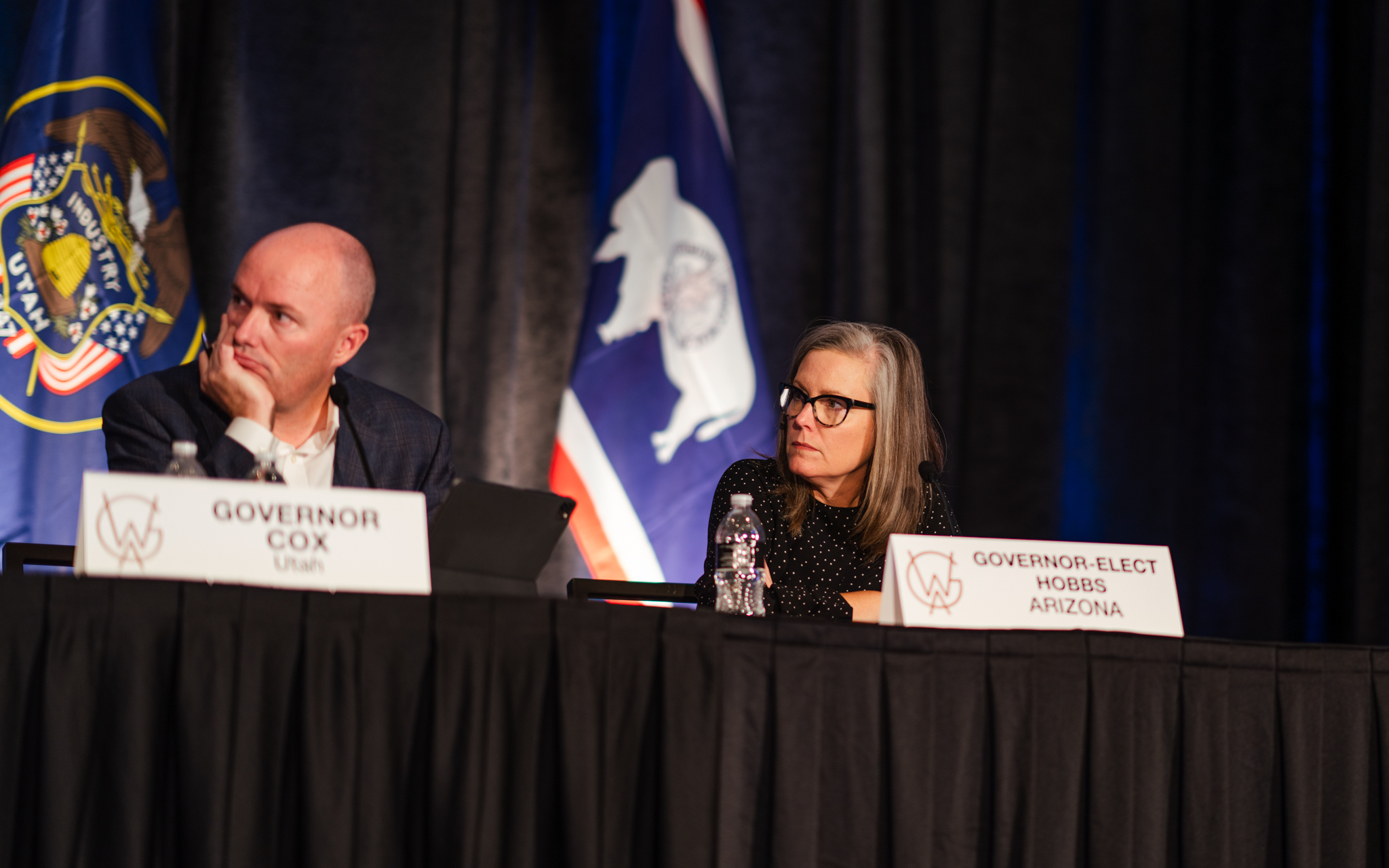 "We have staffed up not only folks on the ground, but also in the ten priority landscapes that were identified in the Bipartisan Infrastructure law," he said. We are using every tool that we are given to speed up the NEPA process for these wildfire risk reduction projects because we just can’t wait.”
"We have staffed up not only folks on the ground, but also in the ten priority landscapes that were identified in the Bipartisan Infrastructure law," he said. We are using every tool that we are given to speed up the NEPA process for these wildfire risk reduction projects because we just can’t wait.”
Tomás Elias Carbonell, Deputy Assistant Administrator for Stationary Sources, Office of Air and Radiation, U.S. Environmental Protection Agency:
“We have a lot of work to do to restore our forests to a healthy condition.”
JoAnna Strother, Senior Director of Advocacy, American Lung Association:
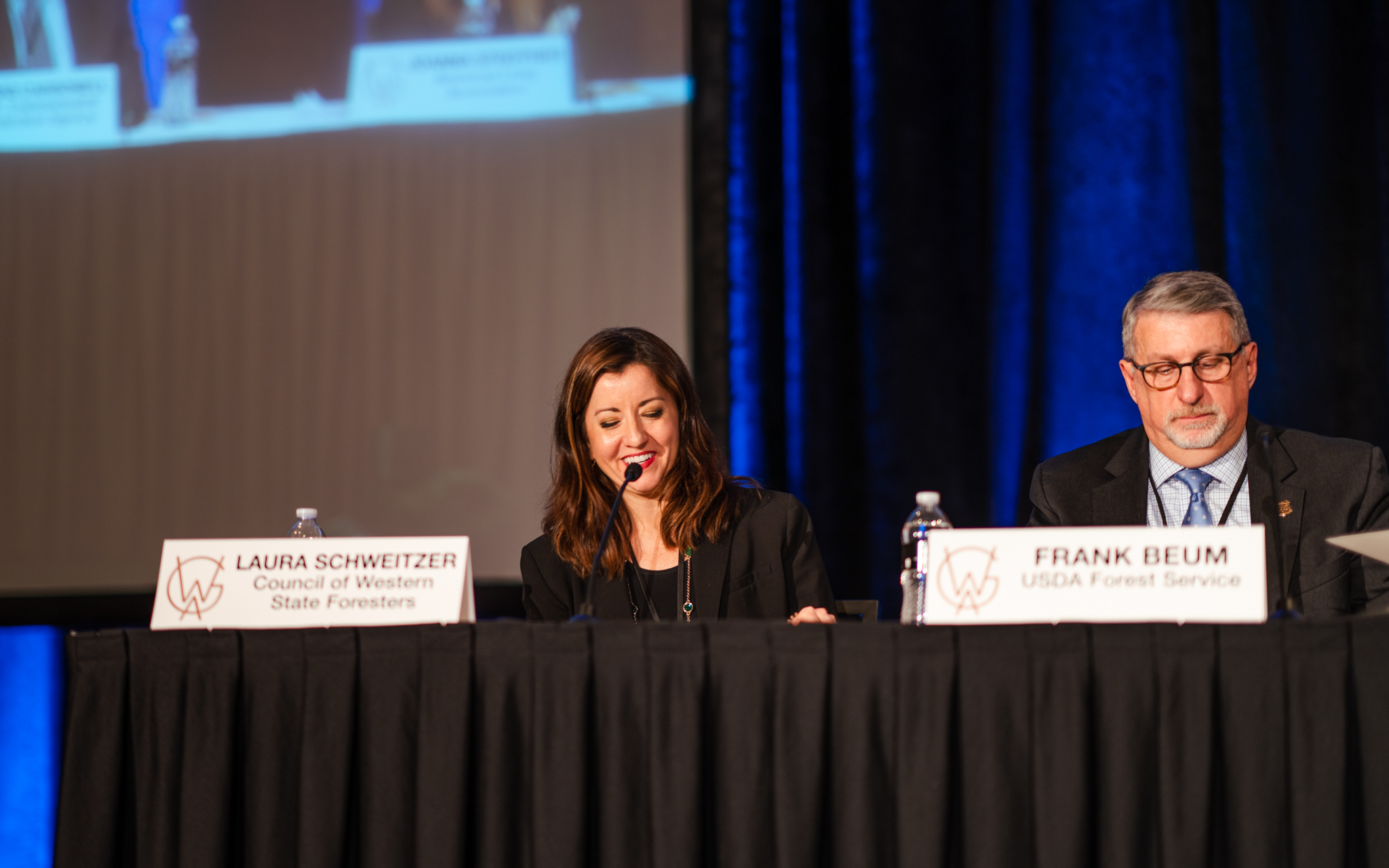 “Over 130 Americans live in a community with unhealthy air and 140 million live in an area with high levels of ozone or other pollutants,” she said. “Prescribed fires can help to reduce the risk of catastrophic wildfires and the impact on air quality and public health.”
“Over 130 Americans live in a community with unhealthy air and 140 million live in an area with high levels of ozone or other pollutants,” she said. “Prescribed fires can help to reduce the risk of catastrophic wildfires and the impact on air quality and public health.”
Laura Schweitzer, Executive Director, Council of Western State Foresters:
“Another area for continued growth is inter-agency coordination between air quality and land managers.”
Keynote III – Mitch Landrieu White House Senior Advisor and Infrastructure Coordinator
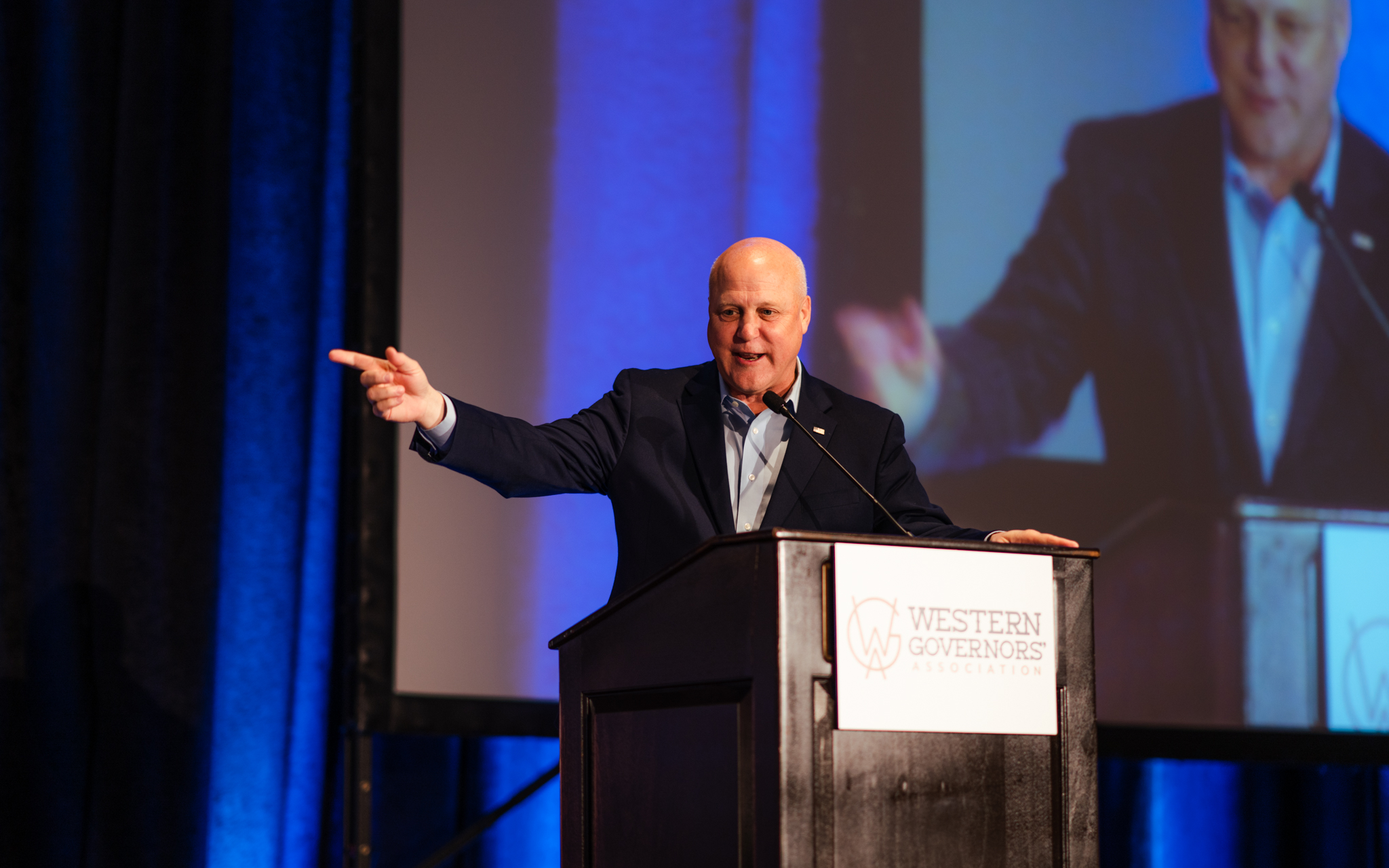 "We are working in communion with tribal communities, mayors, and our states to lift up the United States. We want to put our money where our mouth is and get it to the people who can do something about it," he said. "America will win the future. That is what the infrastructure bill is about."
"We are working in communion with tribal communities, mayors, and our states to lift up the United States. We want to put our money where our mouth is and get it to the people who can do something about it," he said. "America will win the future. That is what the infrastructure bill is about."
Roundtable IV – From Mines to Magnets: Expanding Domestic Mineral Supply
Diana Bauer, Acting Deputy Director of the Advanced Manufacturing Office, Office of Energy Efficiency and Renewable Energy, U.S. Department of Energy:
"We mine rare earth materials, but we send them to China for refining and processing. That is not good from a manufacturing or environmental perspective," she said. "There are opportunities in the U.S. to make [refining and manufacturing] environmentally friendly and sustainable."
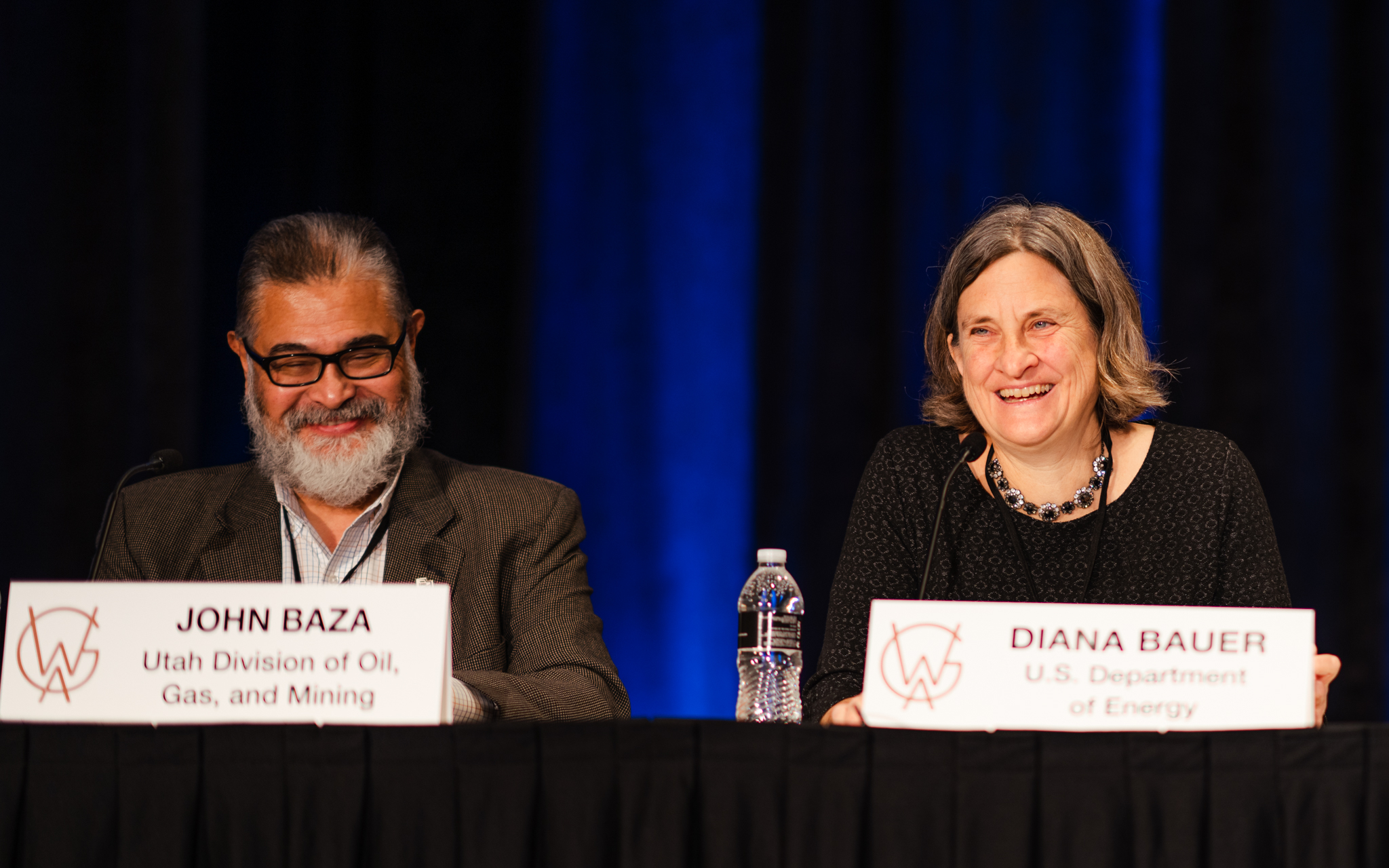 John Baza, Director, Utah Division of Oil, Gas and Mining:
John Baza, Director, Utah Division of Oil, Gas and Mining:
"Not only is the supply and demand for critical minerals improving, but it is also beneficial to states," he said. "In 2021 the estimated value of extractive industries in Utah is $7.8 billion dollars, or 10% of Utah’s GDP."
Thayer Smith, President, USA Rare Earth:
"China is super clear; they want to dominate the electric vehicle market," he said. "If our companies want to be competitive globally, they need a domestic supply chain."
Roundtable V –Addressing Housing Challenges in the West
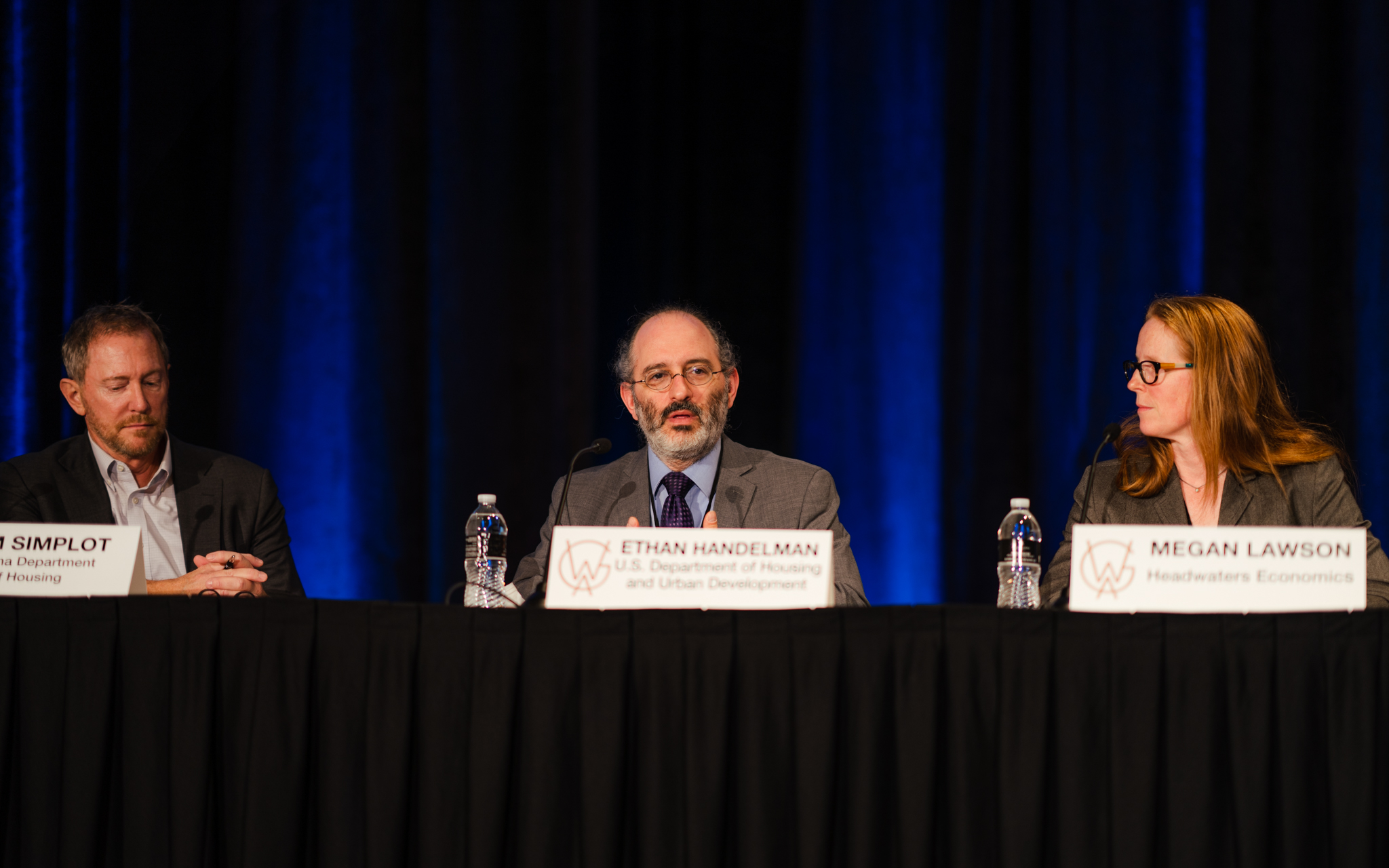 Ethan Handelman, Deputy Assistant Secretary for the Office of Multifamily Housing Programs, U.S. Department of Housing and Urban Development:
Ethan Handelman, Deputy Assistant Secretary for the Office of Multifamily Housing Programs, U.S. Department of Housing and Urban Development:
"In far too much of this country, you can only build single family homes. We need to find ways to create more options, allow people to choose what they want, and create space for that to occur."
Governors’ Business Session
The Western Governors approved three new policy resolutions at the 2022 Winter Meeting: